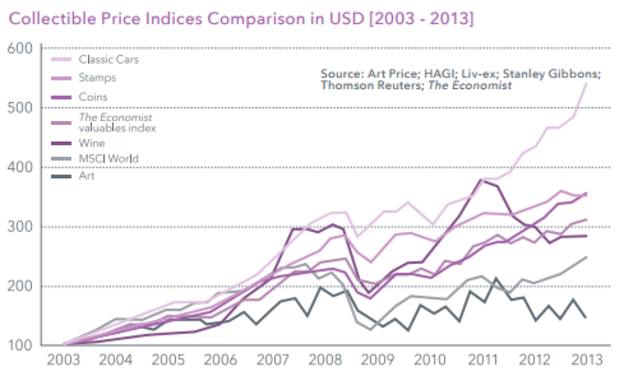“Those looking for income, quick gains or with a low capacity for loss, shouldn’t be considering collectibles.”
Diversification tool
Indeed, there are some investors who should avoid collectibles entirely and stick with regulated financial products.
Sam Mudie, portfolio manager at Cult Wines, says fine wine investing is not for those who are “looking to make a quick buck or have access to your capital with a moment’s notice”.
“As with most passion asset classes, investors should only be committing capital they consider ‘excess’ to their regular investable assets,” he explains. “In other words, this should be a diversification tool for everyday investments such as equities, bonds or property.
“It’s also not easy to draw any form of dividends from the wine market so investors should be prepared to sit it out for capital growth rather than hoping to get any income from it.”
For those who have decided they would like to dip their toe into the world of collectibles having sought advice before doing so, how should they go about it?
Ms Best admits: “Fraud and forgeries do exist, so it’s essential to deal with reputable parties and to get as much transparency and authentication as possible on the provenance, ownership and valuation of the assets.”
Intelligent Partnership produced a report in 2014 titled, Collectibles: Risks and reasons to invest, which offers some helpful pointers.
It points out Coutts launched the ‘Objects of Desire’ Index in 2013, which tracks the value of several passion assets.
Figure 1: Collectible price indices comparison in US$ 2003-2013
Source: Intelligent Partnership, 'Collectibles: Risks and reasons to invest'
As collectible investments do not come under the remit of the Financial Conduct Authority, or any other regulatory body, there is often no quality mark or certification which might help potential investors identify a trusted seller.
Jamie Ritchie, worldwide head of Sotheby’s wine, acknowledges among fine wine, there is a wide range of wine merchants from which to purchase a wine investment.
“I would counsel someone to go to the ones which are the most well-known, the most reputable and also not just to go to one, but counsel the advice of two or three. Using a few different sources gives you balance and different information sources to check the information you’re receiving,” he notes.
Mr Mudie points out: “Unfortunately, following the Asia-led, Bordeaux boom between 2008 and 2011, a string of companies took advantage of a lot of positive performance to trade under misleading pretences. Thankfully, none lasted too long.
“These served to highlight existing issues and weaknesses in legitimate companies’ business models and has ultimately sharpened up the industry as a whole. It also has steered consumers down a more considered approach to investing in wine, something that we warmly welcome.”







